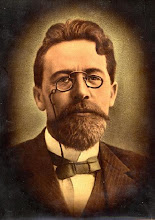Prior to the project, in class, we read numerous articles conveying the ways in which readers make meaning of the text. In one piece, titled “Gender and Reading” by Elizabeth A. Flynn, I learned I was a submissive reader. She said this was when, “The reader is entangled in the events of the story and is unable to step back, to observe with a critical eye” (Flynn 269). I was overly involved in the story, trying so hard to find its intended meaning that I ended up missing it completely. Yet, it was not until reading “How Readers Make Meaning,” by Robert Crosman, that I gained the most clarity. He wrote, “readers make the meaning of literary texts, and there is no such thing as ‘right reading,’” (Crosman 207). This was truly my turning point. I realized that I needed to stop trying to achieve the “right reading,” and instead, make my own meaning.
During our group project I utilized my newfound knowledge, and allowed my mind to coexist with the text. I read the story once, and then wrote down my thoughts. I truly empathized with Iona, but I was left with a lot of answered questions. So, I read the story again, and more thoroughly examined the text. Since it was such a short story, I read it as though every word was strategically placed in order to convey some sort of meaning. This really helped me to begin to fill in some of the gaps. However, I still needed to read the story again. This time, I extensively examined the parts of the story I paid most attention to, as well as those aspects I ignored. Chekhov’s use of figurative language allowed me to arrive at a satisfying meaning. I was able to fill in the gaps, and supported my claims using text form the story.
I was interested to find out how the rest of the group responded to the story. I found every response exposed me to something new. I was able to meet and discuss the story’s meaning with Ryann and Karen. I enjoyed how Ryann made great use of May, and that Karen referenced Chekov’s style. They were both left wondering the circumstances surrounding the death of Iona’s son, but that was not a question I focused on. My opinion was vastly different from the group, who felt sorry for Iona at the end. Karen felt it was heartbreaking that he had to resort to talking to his mare, but I soon convinced her and Ryann otherwise. I cited examples from the text to convey my meaning that the mare was intended to be Iona’s companion. Rather than being sad for Iona, I was happy. Even though nature was unkind to Iona, he still remained compassionate and was concerned about his mare getting enough to eat. Through their actions, it was evident that they both cared for one another. Even though the best of circumstances did not surround them, at least, they had each other. Through the use of figurative language, I was able to close gaps and make meaning. The same was done by the other group members. That fact that we all arrived at different meanings proved to be more of a learning experience to me, rather than if there was only one "right reading."
Tuesday, February 9, 2010
Subscribe to:
Post Comments (Atom)

No comments:
Post a Comment